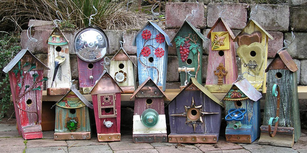Information on Abuse, Safety Strategies and How You Can Help
|
The most dangerous time for a woman is when she has made the decision to leave her abusive relationship.
If you witness or are certain there is a direct threat to a woman and/or her child(ren) call 9-1-1 or Child Abuse Hotline 1-800-387-5437 (KIDS). A woman may stay for many reasons, including: Fear (of being alone, of his threats, of being judged, etc.) Self-blame Anger Depression Lowered self-esteem Want the relationship to succeed For love Self-doubt Belief/hope that he’ll change No real protection Lack of access to protective orders Lack of shelter No transportation (to escape) Lack of child care Fear for pets Lack of health care No affordable housing Lack of language accessible services |
Safety Strategies if you or someone you know is experiencing abuse:
|
Types of Abuse: Physical, Psychological, Emotional, Sexual, Financial, Identity, Cultural, Spiritual, Stalking
Some signs that may indicate someone is
experiencing abuse:
Unusually sad, lonely, fearful, exhausted
Difficulty concentrating
Fearful of leaving work
Upsetting or frequent phone calls
Uses alcohol or drugs to cope
Isolating oneself/withdrawn/avoiding social interaction
Regularly late for work
Anxiety
Physical abuse; unexplained bruising
Sexual assault/rape
The most important things we can do to help is listen, show concern and be there. You may want to react or give specific advice but try to resist, it must be the woman's decision to leave. Being a link to community resources is important.
Click HERE for more information on abuse and safety planning.
Some signs that may indicate someone is
experiencing abuse:
Unusually sad, lonely, fearful, exhausted
Difficulty concentrating
Fearful of leaving work
Upsetting or frequent phone calls
Uses alcohol or drugs to cope
Isolating oneself/withdrawn/avoiding social interaction
Regularly late for work
Anxiety
Physical abuse; unexplained bruising
Sexual assault/rape
The most important things we can do to help is listen, show concern and be there. You may want to react or give specific advice but try to resist, it must be the woman's decision to leave. Being a link to community resources is important.
Click HERE for more information on abuse and safety planning.
